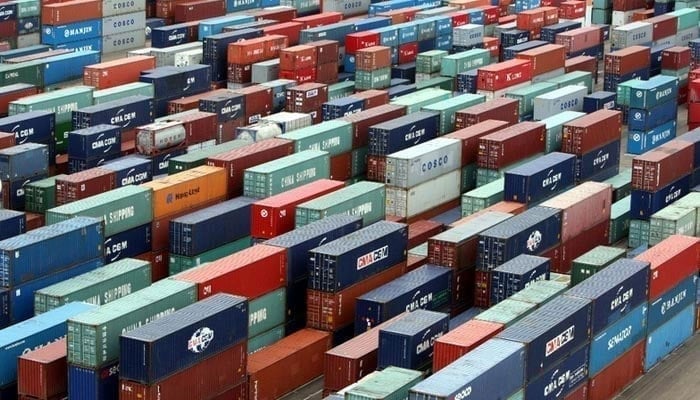
- Industry demands review of convoy rules to save trade.
- Tracker costs are increasing and delays are disrupting on-time deliveries of goods.
- New customs rules described as “tedious and impractical”.
KARACHI: The movement of bonded goods from Pakistan ports has almost come to a halt following the introduction of new regulations by the Customs Department for escorting transit and transshipment shipments, News reported Sunday.
Implemented on January 1, 2025, these rules have significantly slowed operations, with bonded carriers transshipping only minimal quantities. Transport operators have refused to send vehicles in convoys escorted by customs personnel, calling the process both economically unfeasible and time-consuming.
According to a notification from the Customs department, the new standard operating procedures (SOPs) specify designated routes and deployment plans for en route escorts of goods in transit and transshipment.
“These SOPs aim to streamline the escort process, ensuring safety and timely delivery of goods in transit and TP on various routes. The deployment of sepoys is carefully planned to accommodate rest periods, thereby ensuring their readiness for subsequent duties,” the notification said.
However, industry stakeholders including bonded carriers, carriers and importers said News that the new SOPs were introduced without considering the practical challenges they would create.
For example, a vehicle usually takes 24 hours to reach Sukkur after leaving Karachi. According to the new regulations, a convoy of 14 to 15 vehicles accompanied by three sepoys would need 48 hours to complete the same journey.
“This process is not only time-consuming, but also inconvenient. Vehicles have different rest points, such as hotels and gas stations. Forcing them to stop at one place disrupts operations,” they said.
Representatives of bonded carriers revealed that the movement of goods has stagnated, with only a few shipments transhipped in recent days. The problem intensified after the license of tracking company TPL Trakker was revoked on December 31, 2024.
TPL Trakker was tasked with installing trackers on transit and transhipment containers to ensure their security.
Customs has now commissioned two companies to temporarily install trackers for three months, during which time tenders will be issued for a long-term contract. Movement of bonded goods in convoys escorted by customs personnel has also been made mandatory.
Industry insiders noted that the cost of trackers has increased to the extent that carriers are now required to install devices from both new companies.
These costs are expected to increase further once a new contract is awarded. Ultimately, the additional expenses will be passed on to consumers.
The customs service did not respond News requests for comments.
Malik Sher Khan, Managing Director, Shaheen Freight Services, said News that 90% of trade would be affected if bonded goods continued to be transported by convoys.
He explained that most vehicles listed with bonded carriers are not suitable for highway convoy operations.
He urged the Federal Board of Revenue (FBR) to facilitate trade by ensuring speedy clearance and transportation of bonded goods, saying timely deliveries are essential for promoting trade.
“The transport sector employs a large workforce and delays can disrupt livelihoods,” he added.
